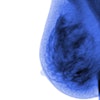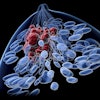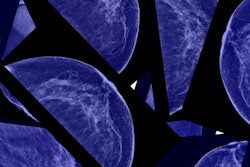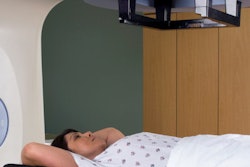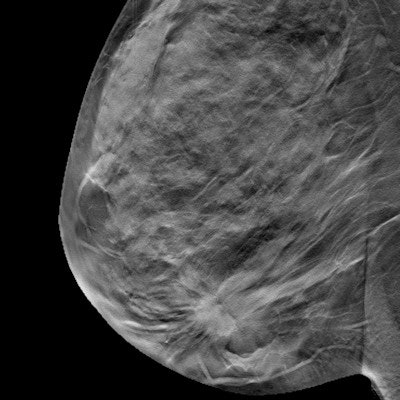
Breast MRI is an effective tool for further assessment of inconclusive digital breast tomosynthesis (DBT) findings, according to a study published online September 12 in the American Journal of Roentgenology.
Although equivocal findings on DBT are usually rare, radiologists do encounter them, especially in the early phase when a facility is implementing DBT, wrote a team led by Dr. Bethany Niell of Massachusetts General Hospital. That's why it's important to have an additional tool in the workup arsenal.
"Despite thorough diagnostic evaluation with mammography, DBT, and sonography, the breast radiologist may occasionally remain uncertain about whether or not a finding is real or new," the group wrote. "Although infrequent, such equivocal findings on combined full-field digital mammography and DBT pose a diagnostic dilemma because the radiologist may not be certain that biopsy is indicated or may be uncertain how to target a vague finding for biopsy or localization." Breast MRI may be useful for managing such equivocal findings, they noted.
The study included 5,330 breast MRI exams performed between March 2011 and November 2014 to evaluate equivocal findings on combined digital mammography and DBT exams. All patients also underwent diagnostic ultrasound. Niell's group reviewed patient data such as demographics and any previous cancer diagnoses or pathologic findings. Next, they compared the differences in positive and negative predictive values for digital mammography/DBT and MRI.
The number of MRI exams performed due to equivocal findings on digital mammography/DBT was low, at 67 of 5,330 (1%). Of these equivocal findings, 27 were asymmetries (40%), 16 were focal asymmetries (24%), five were masses (7%), and 19 were architectural distortions (28%). Biopsies identified five cancers among the 67 patients (7%).
MRI's positive and negative predictive values were higher than those of digital mammography/DBT, the researchers found. The researchers also found that the frequency of recommendations for breast MRI to further investigate equivocal findings decreased dramatically in the three years following the implementation of DBT.
| Breast MRI vs. digital mammography/DBT for equivocal findings | ||
| Measure | Digital mammography/DBT | Breast MRI |
| Positive predictive value | 6% | 19% |
| Negative predictive value | 90% | 98% |
Inconclusive findings on DBT are rare, but it's important for radiologists to have additional tools for following up, the team concluded.
"As clinical implementation of DBT becomes increasingly widespread, breast radiologists need an algorithm for addressing the small number of inconclusive findings that remain equivocal despite thorough digital mammography/DBT and ultrasound examinations," the researchers wrote. "Breast MRI is a useful adjunctive tool for these selected cases."


